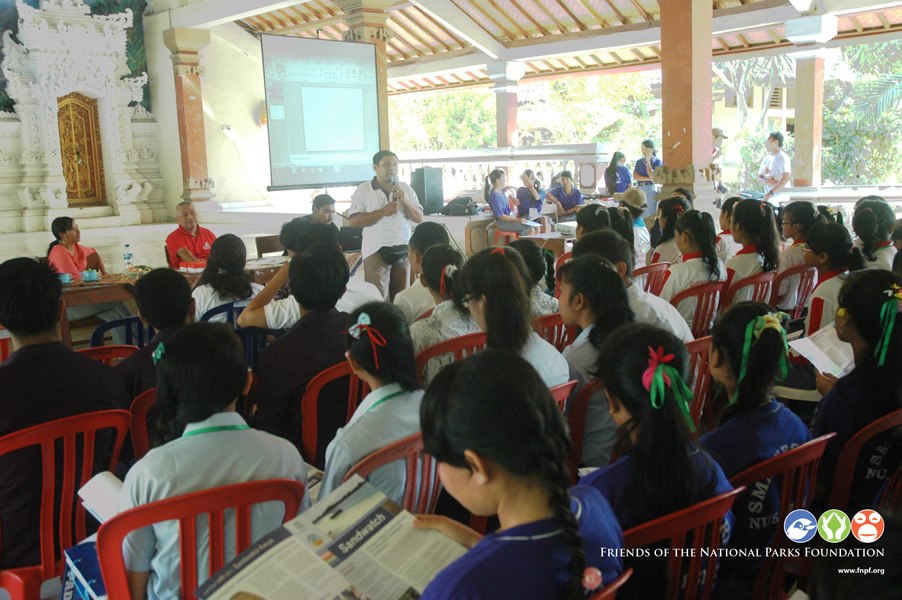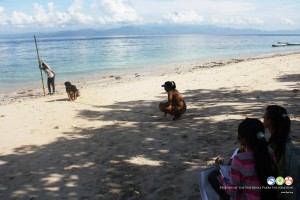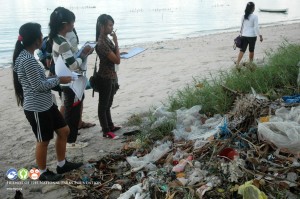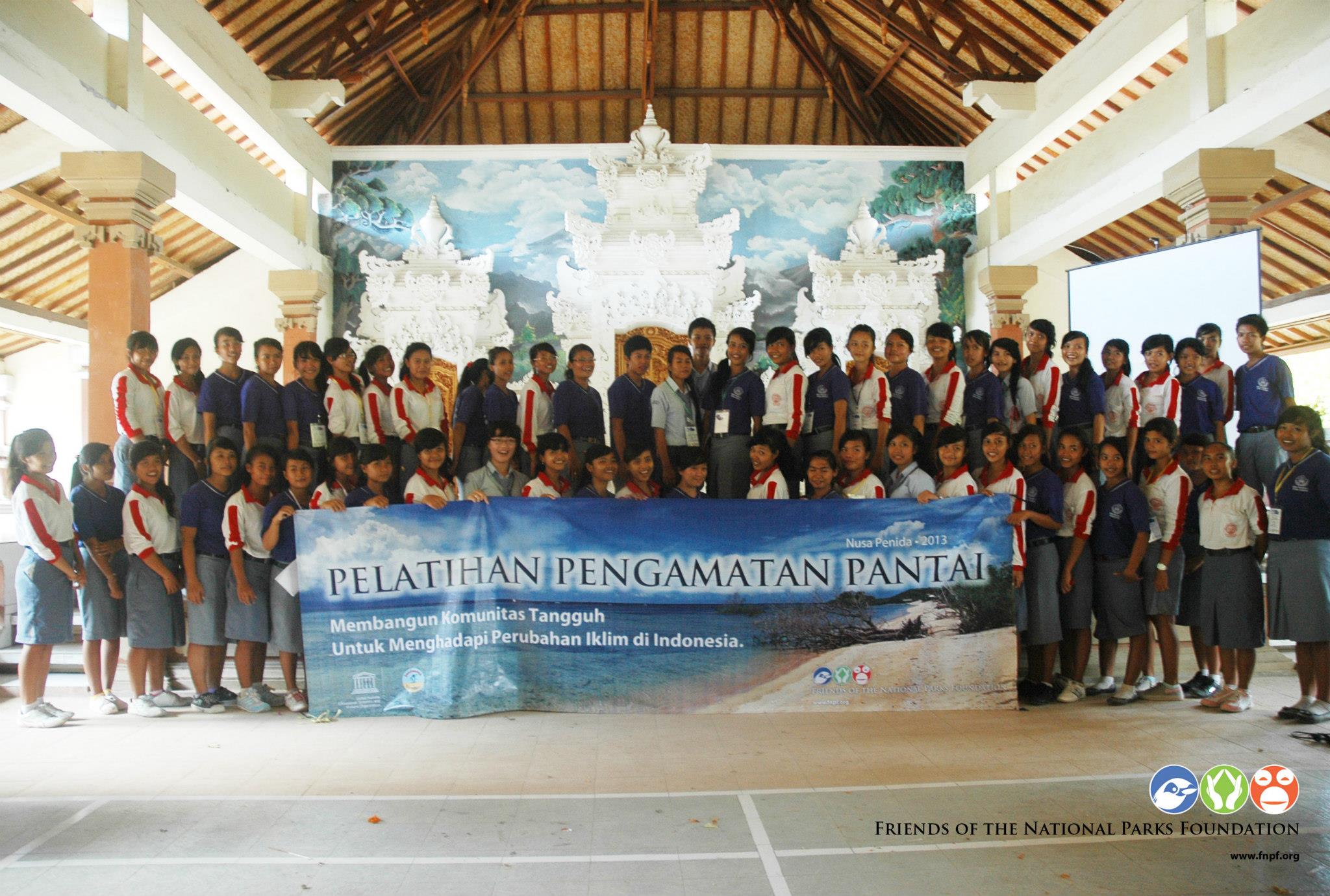 The climate change impact is apparent to, and felt by, communities living on coastal areas and small islands, where rising sea levels means diminishing land mass. This is a real challenge faced by Nusa Penida – an area comprising 3 small islands: Nusa Penida, Nusa Lembongan og Nusa Ceningan. Located off the southeast coast of Bali, this group of islands forms a habitat comprising the sea, coastal area, mangrove forest, dry farm land and small forests spread over areas where temples are located. Climate change has brought a negative impact on the ecosystem of Nusa Penida, both land and sea, wildlife sustainability and also community’s livelihood.
The climate change impact is apparent to, and felt by, communities living on coastal areas and small islands, where rising sea levels means diminishing land mass. This is a real challenge faced by Nusa Penida – an area comprising 3 small islands: Nusa Penida, Nusa Lembongan og Nusa Ceningan. Located off the southeast coast of Bali, this group of islands forms a habitat comprising the sea, coastal area, mangrove forest, dry farm land and small forests spread over areas where temples are located. Climate change has brought a negative impact on the ecosystem of Nusa Penida, both land and sea, wildlife sustainability and also community’s livelihood.
Based on a shared agreement to protect and conserve the environment for the sustainable future of communities in Nusa Penida, FNPF (Friends of National Park Foundation) og UNESCO together organized Sandwatch Training on Nusa Penida from 9th – 10thFebruar 2013. The opening ceremony was held in a gymnasium at SMAN 1 Nusa Penida, attended by a total of 90 students from SMAN 1 Nusa Penida, SMKN Nusa Penida, and Vocational High School, as well as 4 teachers. The opening address by the principal of SMAN 1 Nusa Penida was followed by speeches from Mrs. Estradivari the representative of UNESCO, and enriched with presentations from marine experts such Dr. Agus Supangat from the National Council on Climate Change (DNPI); Coral Triangle Center; Reef Check Indonesia and Genitri Foundation.
Sandwatch is an educational process through which students, teachers and local communities work together in the field to monitor coastal environments; identify and evaluate the threats, problemsand conflicts; and develop sustainable approaches to address them. The basic concept of Sandwatch is a simple beach monitoring exercise for students so they could observe the beaches in their area regularly. It is to encourage students to know their beach ecosystem better and to learn about environment conservation ideas which will benefit their communities.
On the first day, students and the teachers learned about Sandwatch methodology and related issues around beach environment followed by a forum discussion on why the Sandwatch and FNPF conservation programs in Nusa Penida are urgently important. The aim is to integrate the Sandwatch way, FNPF’s holistic approach to conservation and local wisdom into the formal and informal education system.
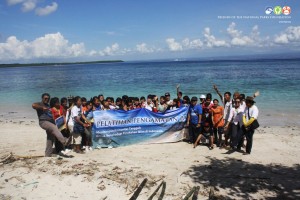 On the second day of training, students and teachers conducted a fieldtrip to Toya Pakeh and Banjar Nyuh Beach to practise and simulate beach observation and map-making, learned about erosion & accretion, people’s use of beaches, debris, plants and animals on the beach. Afterwards, presentations of their findings on the environmental problems facing Toya Pakeh and Banjar Nyuh Beach were made, and a one-year work-plan for beach monitoring, and others activities, were drawn-up to be implemented as part of the Sandwatch program.
On the second day of training, students and teachers conducted a fieldtrip to Toya Pakeh and Banjar Nyuh Beach to practise and simulate beach observation and map-making, learned about erosion & accretion, people’s use of beaches, debris, plants and animals on the beach. Afterwards, presentations of their findings on the environmental problems facing Toya Pakeh and Banjar Nyuh Beach were made, and a one-year work-plan for beach monitoring, and others activities, were drawn-up to be implemented as part of the Sandwatch program.
Please visit these pages, for more information on UNESCO-Sandwatch initiative in the world and Indonesia.
FNPF/KA/14022013

